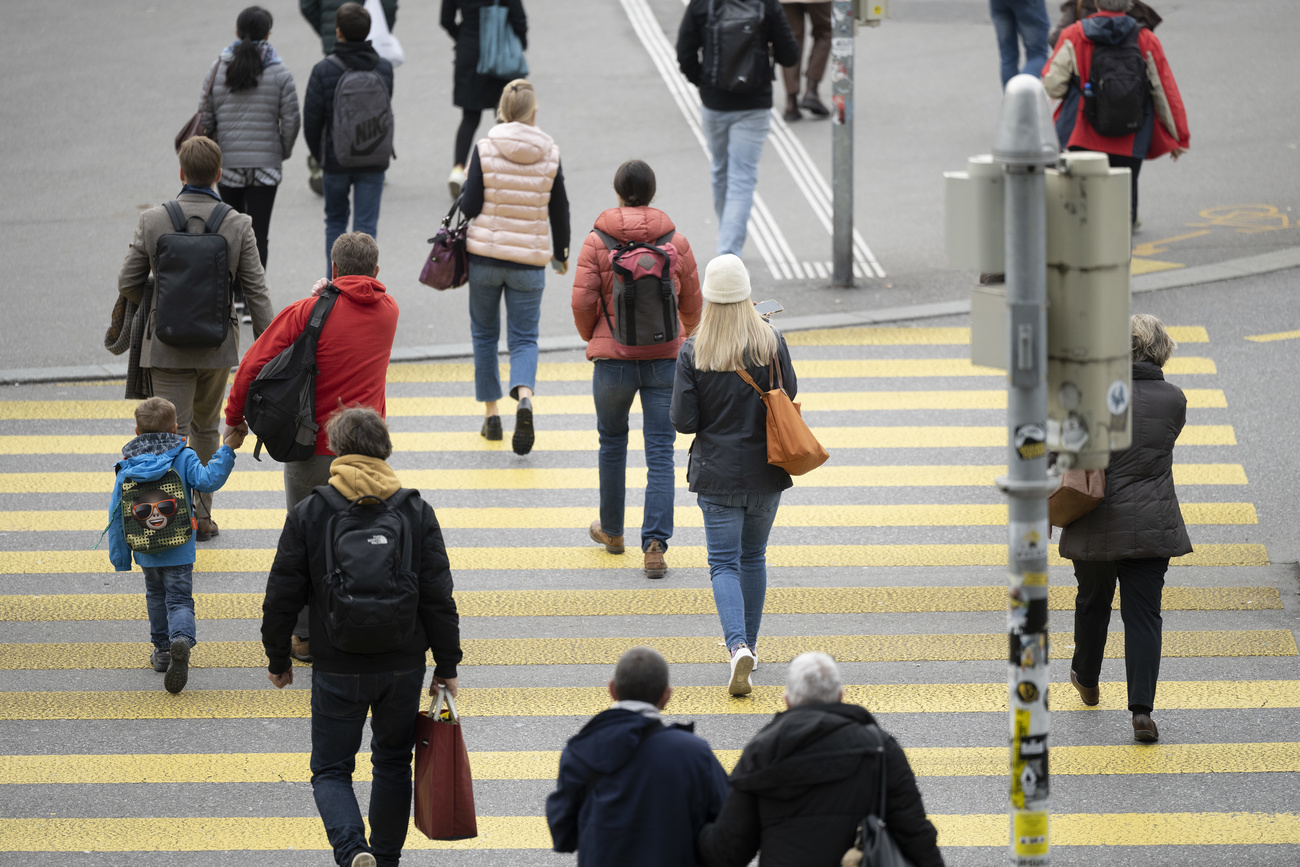

Switzerland Today
Dear Swiss Abroad,
We live in uncertain times – that’s the sentiment of many Swiss citizens. In a major survey conducted by the Swiss Broadcasting Corporation (SBC), of which SWI swissinfo.ch is a part, respondents expressed negative feelings about the future. Only 10% said they were completely satisfied with their lives.
In contrast, Swiss citizens abroad appear to be faring better, with 19% reporting complete satisfaction. However, this sense of contentment is limited to a very specific group.
Best wishes from Bern,

The Swiss have grown more pessimistic: concerns about the future
“How are things going?” Over 50,000 Swiss citizens responded to this question in the recent SBC survey. The results show that most have become somewhat more pessimistic about the future.
While the majority of Swiss people are currently happy and prosperous, concerns about maintaining this level of affluence are widespread. “We are at a very high level, and there are fears that this won’t last forever,” says Urs Bieri from the research institute Gfs Bern, which conducted the survey for the SBC. Only 14% of respondents believe their financial situation will improve in the coming year. The main concern is the rising cost of healthcare, though issues such as war, security, and terrorism are also on their minds.
As for the Swiss Abroad, the study highlights one important factor contributing to happiness: retirement. Swiss pensioners living abroad are more satisfied with their lives than average, while satisfaction among those still working is below average. According to Bieri, Swiss workers abroad face more job pressure, with less secure employment and possibly greater wage instability.
The survey results of Swiss Abroad
Our article with all the results.
Are we too pessimistic about the future? Join the discussionExternal link on our “dialogue” platform!
More

Were coronavirus measures for the elderly too strict? The Swiss Federal Council publishes a report on its impact
Admitting past mistakes is a sign of wisdom. The Federal Council has done just that, acknowledging that some aspects of the response to the coronavirus pandemic could have been handled better.
One key area was the protective measures in retirement and nursing homes. Due to the heightened risk faced by older people, stricter measures were implemented, with some residents unable to leave or receive visits from relatives.
The Federal Council commissioned several studies to analyse the impact of these measures. The conclusion: the restrictions caused considerable suffering in care homes, primarily due to the lack of social contact. The measures were not always proportionate. For instance, no distinction was made between older people and those in assisted living, meaning even healthy individuals faced severe restrictions. The Federal Council now states that in a future pandemic, the perspectives of those affected must be given greater consideration.
Read the full article by CH Media at WatsonExternal link.

Ban on mobile phones in schools and on the way to school: how much should students’ lives be controlled?
A friend who works as a teacher recently told me that her students prefer taking the bus to school over cycling, simply because it gives them more time on their mobile phones. The use of mobile phones by students has become a significant issue in Switzerland, prompting strict measures in schools.
Cantons Fribourg, Vaud, Jura, Valais, and Geneva banned mobile phones from classrooms and school playgrounds years ago, according to the newspaper Le Temps. Canton Neuchâtel now aims to go further, with political parties calling for a ban on smartphones in the vicinity of schools as a measure to combat bullying.
However, enforcing such a ban is challenging, especially when extending it beyond school premises. In some schools, mobile phones are confiscated for several days as punishment. However, the cantonal court in Fribourg ruled that confiscating a phone for two weeks is no longer reasonable in today’s world.
Read the article from Le TempsExternal link (in French & with a paywall)
More

Cows adorned with flowers and cheese dividing: it’s time for the alpine cattle drive, a centuries-old Swiss tradition
It’s clear in Bern today that summer has ended. The Alpine season is over, and Swiss public television, RSI, is celebrating a long-standing Swiss tradition: the Alpine cattle drive. After spending the summer months in the mountains with their cows, sheep, and goats, the herders are returning to the valley.
This practice of grazing animals on alpine pastures dates back to the late Middle Ages. In 2023, the alpine season was added to UNESCO’s list of intangible cultural heritage.
The Alpine cattle drive is an important event for mountain communities, celebrated by both locals and visitors. Cows are often adorned with flowers – an honour reserved for those that have produced the most milk. In some regions, this is followed by the “Chästeilet,” an old custom where alpine farmers divide the mountain cheese made during the summer.
Read the article from RSIExternal link (in Italian).

Switzerland in Focus
Our photo of the day shows Energy Minister Albert Rösti standing in front of 15 million tonnes of concrete at the Grand Dixence dam in canton Valais, which he was invited to visit. The Grand Dixence, situated at the far end of the Val des Dix, is the highest dam in Switzerland, standing at 285 metres.
Translated from German by Alexandra MV Andrist/ac

In compliance with the JTI standards
More: SWI swissinfo.ch certified by the Journalism Trust Initiative




























